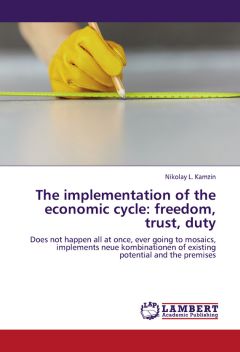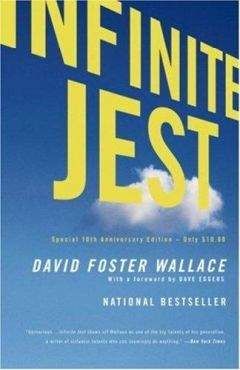Ознакомительная версия.
The instruction specifies a way to recover the bank of the payer amount paid to them. Payee bank is guided by specific instructions contained in the payment order.
– Advance payment – the payment of goods importer in advance of shipment, and sometimes to their production (for example, the import of expensive equipment, ships and aircraft). In contrast to international practice, where advance payments are 10 – 33% of the contract, in Russia they reach 100%. Thus lend importers of foreign suppliers. Consent of the importer at a pre-payment due either to his interest, or the pressure of the exporter.
– Calculations on open account – settlements providing for periodic payments in a timely manner at the importer to exporter of regular supplies of goods on credit to this account. These calculations are most beneficial to the importing and practices of trust and long-term relationship with a foreign supplier.
The seller delivers the goods with no guarantee of payment, the buyer transfers money to the payment date. The seller does not receive any guarantees from the buyer. Therefore, such terms of payment are possible only in one country or between firms that know each other well and in foreign trade are rarely encountered.
The peculiarity of this form of payment is that the movement of goods a head of the movement of money. Calculations related to commercial loans. In fact, this form of payment used for lending to the importer.
– Calculations based on bills, checks, bank cards – international payments, which apply transferable and regular bills. For the payment of a bill acceptor is responsible (importer or the bank), consenting to pay it. A uniform law a bill (1930) governs the form, details, and the terms of billing and payment of bills.
For non-commercial transactions be used travel (tourism) receipts issued by a major bank in different currencies. Cheque – monetary instrument prescribed form containing an order to pay the bank designated by him the currency to its owner. Form and check details are regulated by national and international laws (check the 1931 Convention, etc.).
If payment is made by check, the debtor (buyer) either alone puts a check (check the client), or shall refer it to the bank statement (check the bank).
Road (coach) check – a payment document, the monetary obligation (order) to pay the amount indicated on it the owner of the check. It is issued by major banks in national and foreign currency.
Eurocheque – check in the Euro-currency issued by a bank customer without prior payment of cash and in larger amounts through a bank loan of up to 1 month. He is paid in any currency of the country – member agreement. Eurocheque in force since 1968.
In the international accounts are actively used bank cards (Visa, MasterCard, CirusMaestro, Union Card, DinerS Club, and American Express).
International operations are carried out with the help of computers, electronic signals in the form of entries in the memory banks of computers, transmitted via remote communication. Information is passed on interbank settlements through SWIFT. Joint Stock Company – Worldwide Interbank Financial Telecommunication Network (since 1977) serves about four thousand banks and financial institutions nearly 100 countries.
Currency clearing – settlements in the form of mandatory set-off of international requirements and obligations on the basis of intergovernmental agreements. Unlike the domestic interbank clearing of mutual credits at the exchange clearing not made voluntarily, and without fail in the presence of an intergovernmental agreement. For the first time foreign exchange clearing was introduced in 1931 amid the global economic crisis. They are widely spread before and especially after World War II (with 74 – in 1935 to 400 bilateral clearing – in 1950). In 1950 – 1958's. multilateral clearing – EUROPEAN PAYMENTS UNION (EPU) – covered 17 countries in Western Europe.
Due to clearing international payments exporters and importers made in national currency with the clearing banks, which produce a final set-off of mutual claims and obligations. Exporters are not foreign and local currency. Importers bring in national currency clearing bank.
Bank for International Settlements (Basel) is the agent bank clearing. William Shakespeare wrote: «If there be nothing new, but that which is, hath been before»[44], was a question about the effectiveness of the regulatory activities of international monetary institutions, which in conditions of crisis in the global system has fallen significantly, prompting several governments located in the band to do disruption reconstruction of the whole system of currency regulation.
Historically, the following features of the main forms of international payments:
– Importers and exporters, as well as their banks to enter into definite relations associated with the payment of title and documents.
– International operations are regulated by legislation and banking regulations.
– International operations – the object of unification and universalization of banking operations. In 1930 and 1931 accepted international promissory notes and checks Convention (Geneva), aimed at harmonizing the bill and voucher laws. The Commission on International Trade Law United Nations (UNCITRAL) continues to unify the Bills of Exchange Act. International Chamber of Commerce, established in Paris in the early XX century, Develops Uniform Customs and Practice for Documentary Credits, the collection and contract guarantees. For example, the first rules were developed for collection in 1936, and then revised in 1967 and 1968. Adheres to these rules, the majority of banks in the world.
– International operations are usually documentary in nature, which is exercised against the financial and commercial documents.
The financial instruments include promissory notes (promissory and transfer), checks, payment receipts.
Commercial documents include invoices, shipping documents evidencing shipment or dispatch (bills of lading, receipts, etc.), insurance documents insurance companies, other documents (certificates, bills, etc.).
The bank verifies the content and completeness of these documents.
Chapter 2
Organization of payments and the order of execution of mutual financial obligations in international economic cooperation
1. International operations as part of the international monetary and financial relations
1.1. The evolution of the global monetary system as a factor development of the international monetary and financial relations
International monetary system-enshrined in international agreements, a form of organization of monetary and financial relations, which operate independently or serving the international movement of goods and factors of production[45].
Monetary and financial system is a necessary step to promote international trade in goods, financial instruments and the movement of factors of production. It consists of two elements. Currency components of the system is the national currency, the terms of their mutual convertibility and circulation, exchange rate parity, exchange rates and national and international mechanisms of its regulation.
Financial elements of the system are the international financial markets and trading mechanisms to specific financial instruments – currency, securities, and loans.
Independent element of the international financial system is the international settlements, serving as the movement of goods and factors of production and financial instruments.
International financing mechanisms are key elements of macroeconomic adjustment, which is carried out in the country's open economy.
Currency is divided according to its membership to:
– the national currency – legal tender in the issuing of countries;
– foreign currency – legal tender in other countries, used in that country.
Classifications can be varied for different characters, in order to achieve the objectives of the study relevant is the following: reserve currency – the currency in which the state held its liquid international reserves used to cover the negative balance of payments.
Generally accepted in the world currency, which is accumulated by central banks in foreign exchange reserves. It serves as an investment asset, is a method of determining the exchange parity used as a tool of foreign exchange intervention, if necessary, as well as for the central bank for international settlements.
The most important characteristic is the degree of currency convertibility them – the ability of residents and non-free and unrestricted exchange and use in transactions with real financial assets.
From the standpoint of balance of payments is convertible for current transactions, capital transactions and complete, and in terms of residents – domestic and foreign.
The classification of exchange rate systems based on what is recognized as a reserve asset, that is, with the help of an asset can be settled by the imbalances in international payments. By this criterion standard monetary systems are divided into gold, gold exchange, devising. During different periods of history such assets were gold, the dollar convertible into gold at a fixed rate, any currency accepted for international payments, but above all, freely usable currencies.
The gold standard was based on the formalization of the countries of the gold content per unit of domestic currency liabilities of central banks buy and sell domestic currency in exchange for gold. Gold exchange standard based on the officially established fixed parities of currencies against the U.S. dollar, which in turn was convertible into gold at a fixed rate. The main features of the standard devising lies in the fact that countries can use any system of exchange rates of their choice – a fixed or floating, established unilaterally or through multilateral agreements. The IMF has the authority to oversee the development of exchange rates and arrangements for their establishment. Abolished the official price of gold, and eliminated its role as the official means of payment between the IMF and its members. As an additional reserve asset, special drawing rights (SDRs).
With the development of foreign economic relations and formed the world monetary system as a form of currency relations governed by the national currency laws and interstate relations. The main element of the monetary system of each country is its national currency[46]. Features of the world monetary system and principles of its construction are closely related to the structure of world economy. It is obvious that a change in its structure has evolved and the world monetary system and, consequently, are modified and improved its basic elements:
– the functional form of world money;
– terms of convertibility;
– modes of exchange rate parities and exchange rates;
– the level of foreign exchange regulation and the extent of foreign exchange restrictions;
– unification of the forms of international payments.
The development of the world monetary system is a spiral with a gap of several decades. In the domestic economy, the monetary systems have evolved from the gold coin standard to a gold bullion and gold exchange, and from him – a paper-credit treatment. Evolving global monetary system has moved to the next stage, called the Jamaican system. It was arranged by agreement of member countries by the International Monetary Fund (IMF) in 1976 in Kingston, Jamaica[47], in which formed the basic principles of a new monetary system, embodied in April 1978 in the second amendment to the Articles of Agreement of the IMF. These principles, which are today, are as follows:
– the abolition of the official price of gold was legalized demonetization of gold, but, nevertheless, thanks to the real values of gold, followed by continued extraordinary role of world money and reserve assets;
– gold exchange standard was replaced by a standard SDR, which formally declared the foundation of currency parities, but in practice did not become a standard of value, the main payment and reserve funds;
– instead of a fixed exchange rate of the country officially since 1973, switched to a regime of floating exchange rates, but were able to choose a fixed or floating exchange rate;
– the IMF has the authority to supervise the development of hard currency and the establishment of agreements.
Problems of Jamaican currency system very quickly appeared in the imperfection of floating exchange rates. Moreover, the problems encountered have exacerbated the financial and currency crises. The need to coordinate national action for overcoming the crisis led global economic community to re-evaluate the role of international financial regulators to harmonize the policies of different countries in the field of monetary relations. William Shakespeare wrote: «If there be nothing new, but that which is, hath been before»[48], was a question about the effectiveness of the regulatory activities of international monetary institutions, which in conditions of crisis in the global system has considerably decreased, forcing the governments of several countries in the band to do disruption reconstruction of the whole system of currency regulation.
The IMF has not coped with the task of predicting the crisis of early shocks. Although this program was developed jointly with the World Bank, IMF, passively watching the change in the macroeconomic cycle – the transition from boom to slower growth of bank lending in the financial market and detachment from the real economy, especially in developed countries, particularly the U.S., which led to the global financial and economic crisis[49].
In economic theory, international monetary relations issues remain unchanged. Over the years, changing only the answers[50]. Like the philosophical notion of substance, dualistic in nature. The inner essence of a stable core and the outer reflection of it in our time, so all knowing «dig» to the bottom of the rod, and starts searching with the external reflection, effortlessly accessible to every listener.
To effectively solve problems of macroeconomic management, on the one hand, the actions of the Central Bank of the Russian Federation should be characterized by independence and consistency. On the other hand, measures in the monetary are a must be accompanied by adequate fiscal policies[51].
As rightly pointed out Frederic Bastiat «you cannot give money to some members of the community but by taking it from others»[52] cash equivalent because this is the existing opportunities, money is their «mirror image», and, therefore, imperative redistribution of opportunity or the cost of moving simply changing the terms without affecting the sum.
Tabl. 1
The main stages of the global monetary system
Compiled from: Батманова Е.С. Томилов П.С. Мировая экономика и международные экономические отношения. – Екатеринбург: Издательство ГОУ-ВПО УГТУ-УПИ. 2005. – С. 85.
Ознакомительная версия.





![Rick Page - Make Winning a Habit [с таблицами]](https://cdn.my-library.info/books/no-image.jpg)